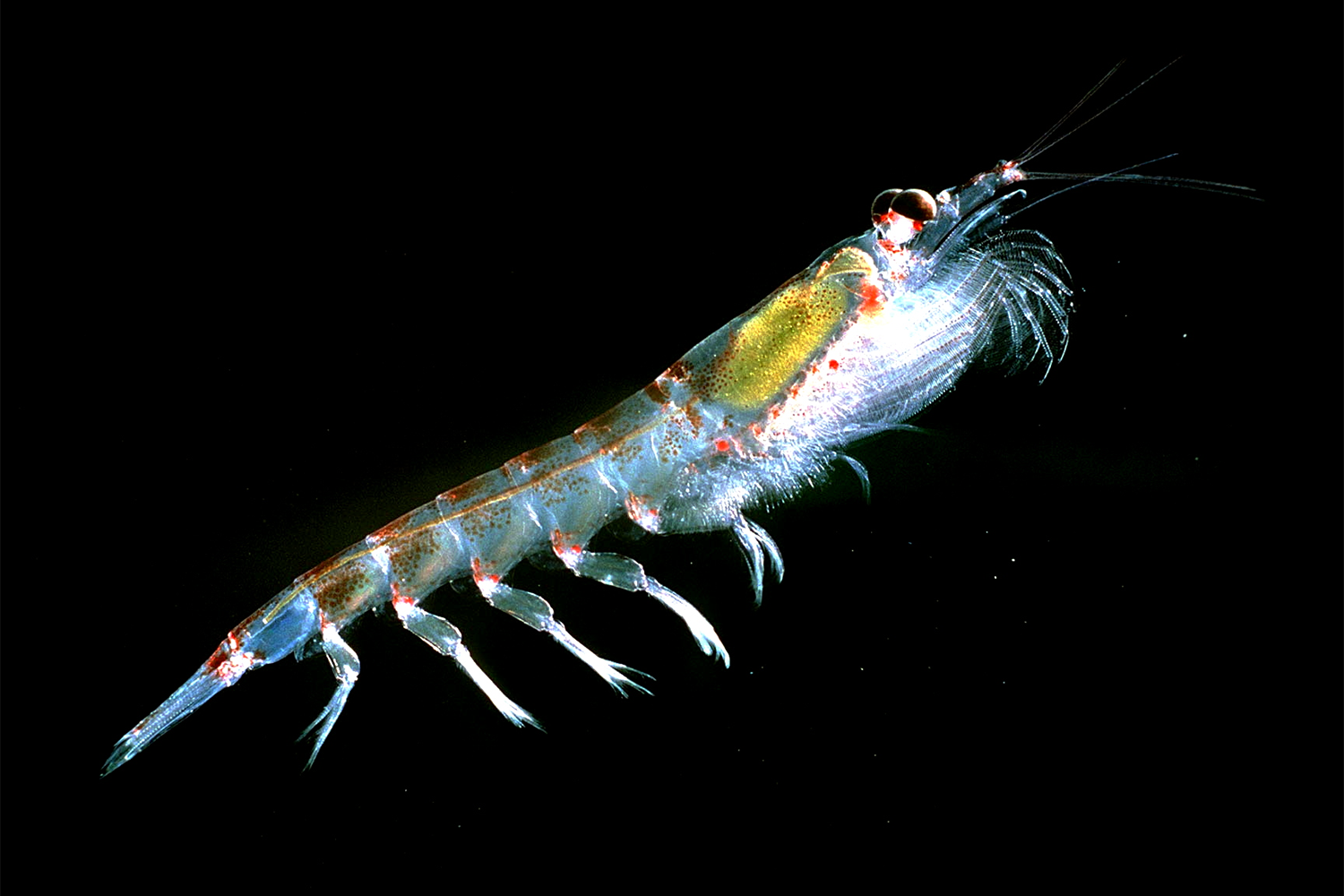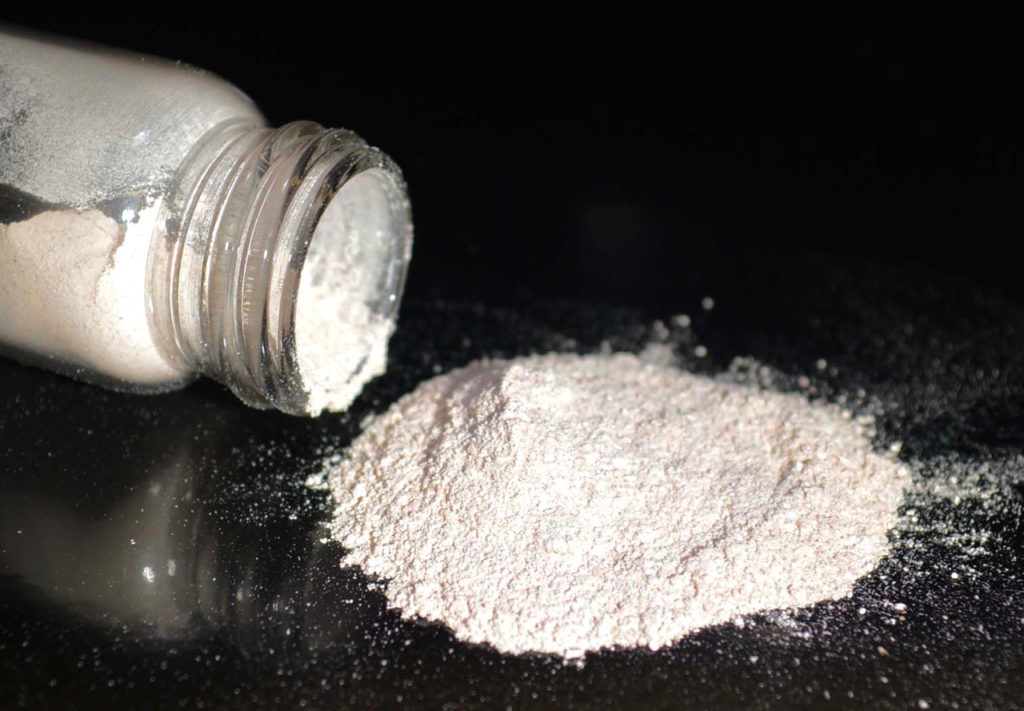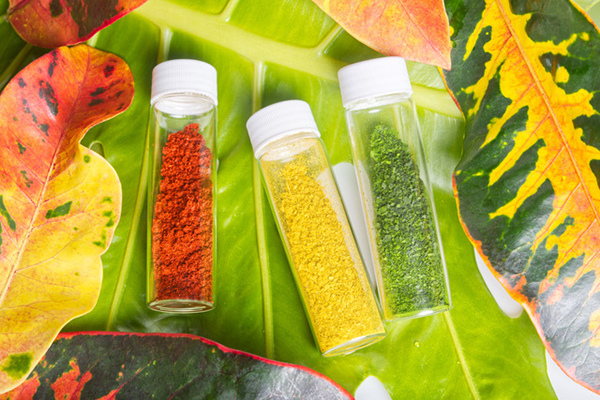Lead author Dr. Rick Barrows says plant-based feed ingredients can also increase feed intake and growth, while krill meal is a good palatant

A recent study published in Fishes – conducted by scientists from several U.S. companies in Florida, California, Montana and South Carolina; the U.S. Fish and Wildlife Service Fish Technology center in Bozeman, Montana; and the Centro Experimental Acuícola of Vitapro Chile, in Puerto Montt, Chile – details the influence of krill meal inclusion at various levels in both plant-based feeds and poultry byproduct feeds without fishmeal and fish oil on Atlantic salmon growth.
“This study was designed to determine if adding krill to either a poultry meal-based series of diets or a plant-based series of diets had a beneficial effect on either feed intake or growth. We now have the methodology to determine if an ingredient can replace krill meal in a plant-based diet,” Dr. Rick Barrows, leading author of the study, told the Advocate.
The research was carried out in tanks at the Centro Experimental Acuícola, Vitapro Chile, in Puerto Montt, Chile. The purpose was to determine the influence of krill meal inclusion at various levels (0, 2.5, and 5 percent) in plant-based and animal-based feeds – that were all fishmeal and fish oil free – on Atlantic salmon growth.
The team found that there were no differences in weight, length or condition factor (K) between treatment groups at the start of the trial, and that test diets had no negative impact on the survival of experimental fish over the length of the study. Replacement of fish oil with vegetable and algal oils, while altering dietary profiles of individual fatty acids, did not affect total dietary saturated, monounsaturated, or polyunsaturated fatty acids.
In contrast to the animal protein-based feeds, benefits were observed for krill meal supplementation in the diets containing plant proteins. Increasing the inclusion rate of krill meal resulted in improved weight gain, with fish achieving growth parity to animals fed the fishmeal and fish oil-based feed. Other researchers have reported similar results, with various fish species presented with substantially reduced dietary fishmeal, or its complete substitution with plant proteins.
Results also showed that Atlantic salmon fed on a primarily plant-based diet grew ~220 percent throughout the current trial without mortality. Moreover, values for their specific feeding rate (SFR), protein productive value (PPV), protein efficiency ratio (PER), morphological characteristics, and composition did not vary compared to those of the control fish fed a fishmeal and fish oil-based diet. Fish growth rates, however, lagged behind all other treatment groups from day 45 onwards. These observations are thus generally in agreement with several other studies on Atlantic salmon where fishmeal has been replaced with various plant proteins.
No nutritional benefit was apparent for the plant-based krill meal test diets since they contained similar protein levels to the fishmeal and fish oil control feeds but differed in individual EAA content and lipid content. Since the plant-5 percent krill meal diet (P3) returned identical results in various parameters measured to those of the control, the benefits gained by the former group can be best explained by increased feed intake due to enhanced palatability.
However, because there were no differences in whole-body composition or visceral indices between the two groups, protein-sparing effects cannot be discounted. It is also possible that the krill meal itself contributed some nutritional benefit by providing additional nutrients to the feed, including astaxanthin and nucleotides, both of which are known to influence salmon health and growth.
It is inevitable that new plant-based protein blends will be identified that more resemble the nutritional qualities of fishmeal while reducing the potential for nutrient deficiencies. As pressure increases for the inclusion of alternative proteins to replace fishmeal, the incorporation of rendered products too will inevitably expand.
Per the authors of the study “As in the case of [fishmeal/fish oil], it would be prudent for feed formulators to utilize several more reliable (consistent quality and cost-effective) products rather than limiting themselves to a single unpredictable wild-caught ingredient. Thus, the F3 Future of Fish Feed launched the F3 Krill Replacement Challenge, utilizing a close variation of the P3 feed formula and experimental protocols described herein to identify potential krill replacements for aquafeeds. The challenge will wrap up in 2024, and results of this trial will be made available at that time, with the hope that the industry may adopt some of the tested market-ready krill replacements.”
Some reports indicate that the benefits of krill meal on feed intake may only be transitory. Moreover, partially deshelled krill meal can significantly decrease the stability of feed pellets in the water column when compared to traditional pellets, which may be a function of the higher levels of soluble proteins in krill meal compared to fishmeal.
Overall “this manuscript highlights the lack of effect of krill meal when used as a supplement at 2.5–5.0 percent in alternative animal-based aquafeeds for Atlantic salmon. However, when used in plant-based aquafeeds, krill meal appears to act as a palatant, increasing salmon feed intake and growth” concluded the study authors.
Now that you've reached the end of the article ...
… please consider supporting GSA’s mission to advance responsible seafood practices through education, advocacy and third-party assurances. The Advocate aims to document the evolution of responsible seafood practices and share the expansive knowledge of our vast network of contributors.
By becoming a Global Seafood Alliance member, you’re ensuring that all of the pre-competitive work we do through member benefits, resources and events can continue. Individual membership costs just $50 a year.
Not a GSA member? Join us.
Author
-

Darryl Jory, Ph.D.
Editor Emeritus
[103,114,111,46,100,111,111,102,97,101,115,108,97,98,111,108,103,64,121,114,111,106,46,108,121,114,114,97,100]
Tagged With
Related Posts

Aquafeeds
Aquafeed moonshots at the F3 ‘talent show’
At the F3 (fish-free feed) Companies Got Talent event in Burlingame, Calif., last week, alternative (non-marine) aquafeed ingredient companies spoke of decoupling aquaculture from fishmeal and fish oil in their quest for greater sustainability.

Health & Welfare
A perspective on shrimp larviculture and liquid larval diets
A prominent shrimp farm and hatchery in Venezuela has tested microparticles, microencapsulated particles and liquid larval diets.

Aquafeeds
A new nutrient for aquaculture, from microbes that consume carbon waste
Biotechnology firm NovoNutrients aims to produce a line of nutraceutical aquafeed additives as well as a bulk feed ingredient that can supplement fishmeal. Its process includes feeding carbon dioxide from industrial gas to a “microbial consortium” starring hydrogen-oxidizing bacteria.

Aquafeeds
Demand is growing for natural astaxanthin for aquaculture feeds and this Hawaiian biotech company is poised to take advantage
Demand for natural astaxanthin is growing, but prices are prohibitive. A new microalgae technology may unlock an affordable solution for aquaculture.


